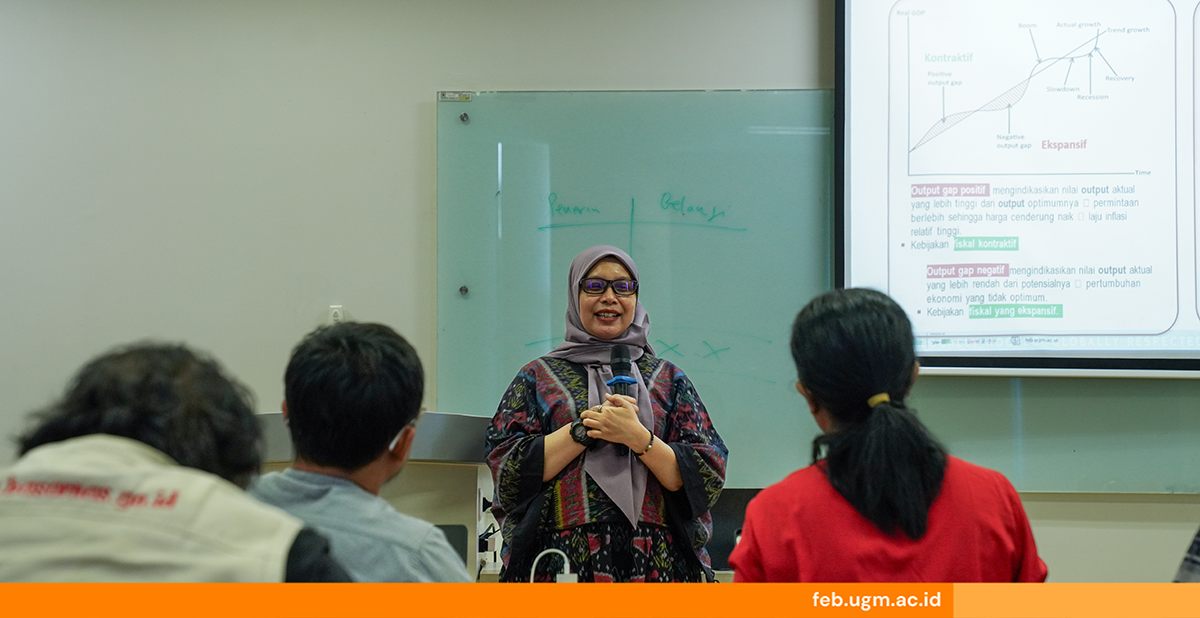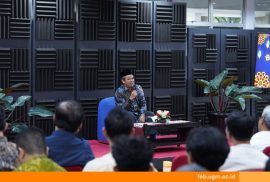
The Ministry of Finance recorded that as of February 2025, the state budget (APBN) recorded a deficit of IDR 31.2 trillion or 0.13 percent of gross domestic product (GDP). In the first two months of 2025, government revenue reached IDR 316.9 trillion, while the realization of government expenditure amounted to IDR 348.1 trillion.
An economist from the Faculty of Economics and Business (FEB) UGM, Dr. Evi Noor Afifah, emphasized the importance of evaluating the APBN to assess the quality and effectiveness of government financial management. This can be achieved through performance-based budgeting, which has five key elements: Minimum Service Standards (SPM), Standard Expenditure Analysis, Performance Indicators, Performance Targets, and Standard Unit Prices (SSH). However, Indonesia lacks regulations on standard expenditure analysis, making it impossible to assess the feasibility of government spending on specific activities.
“This is often the reason why the quality of spending is not optimal because there is no Standard Expenditure Analysis,” Evi said on Friday (14 March 2025) during the Economic and Business (EB) Journalism Academy at FEB UGM.
In this short course for media professionals working in the Yogyakarta region, Evi presented an overview of the APBN and the Indonesian economy. She emphasized that the government should adopt evidence-based policymaking, formulating policies based on data, research, and empirical evidence rather than opinion, intuition, or political interests. In this approach, policymakers focus on policy outcomes by using specific indicators to evaluate success. However, the government has increasingly moved away from evidence-based policymaking in recent years.
In addition, the economics lecturer at FEB UGM, who also serves as the Deputy for Economic Research and Development at the Research and Development for Societal Impact (RDSI) Unit of FEB UGM, explained that policy evaluation can be conducted at different levels. The government can assess whether to continue, revise, expand, replicate, or discontinue a policy. She also emphasized the importance of data in conducting evaluations, whether fiscal data or sector-specific data available at the central and regional levels, to facilitate the evaluation process.
When analyzing government policies or programs, Evi suggested using a logical framework that includes program impacts, activity outcomes, objectives, and the policies implemented to achieve these objectives.
She emphasized that public spending in national and sectoral planning should focus on quality and outcomes, not just quantity and output. According to her, the government must monitor policy effectiveness throughout the results chain to ensure optimal budget utilization.
“Monitoring across the results chain is necessary so that underperforming areas can be identified and addressed,” she explained.
Developing a more potent intervention logic will help identify the key steps to achieve desired results. It will also help establish metrics to track the progress of these steps. For example, the infrastructure sector should focus on maintenance rather than costly rehabilitation to avoid future safety issues.
“Better government performance requires a combination of institutional capacity and political will,” she concluded.
Report by: Najwah Ariella Puteri
Editor: Kurnia Ekaptiningrum
Sustainable Development Goals:









